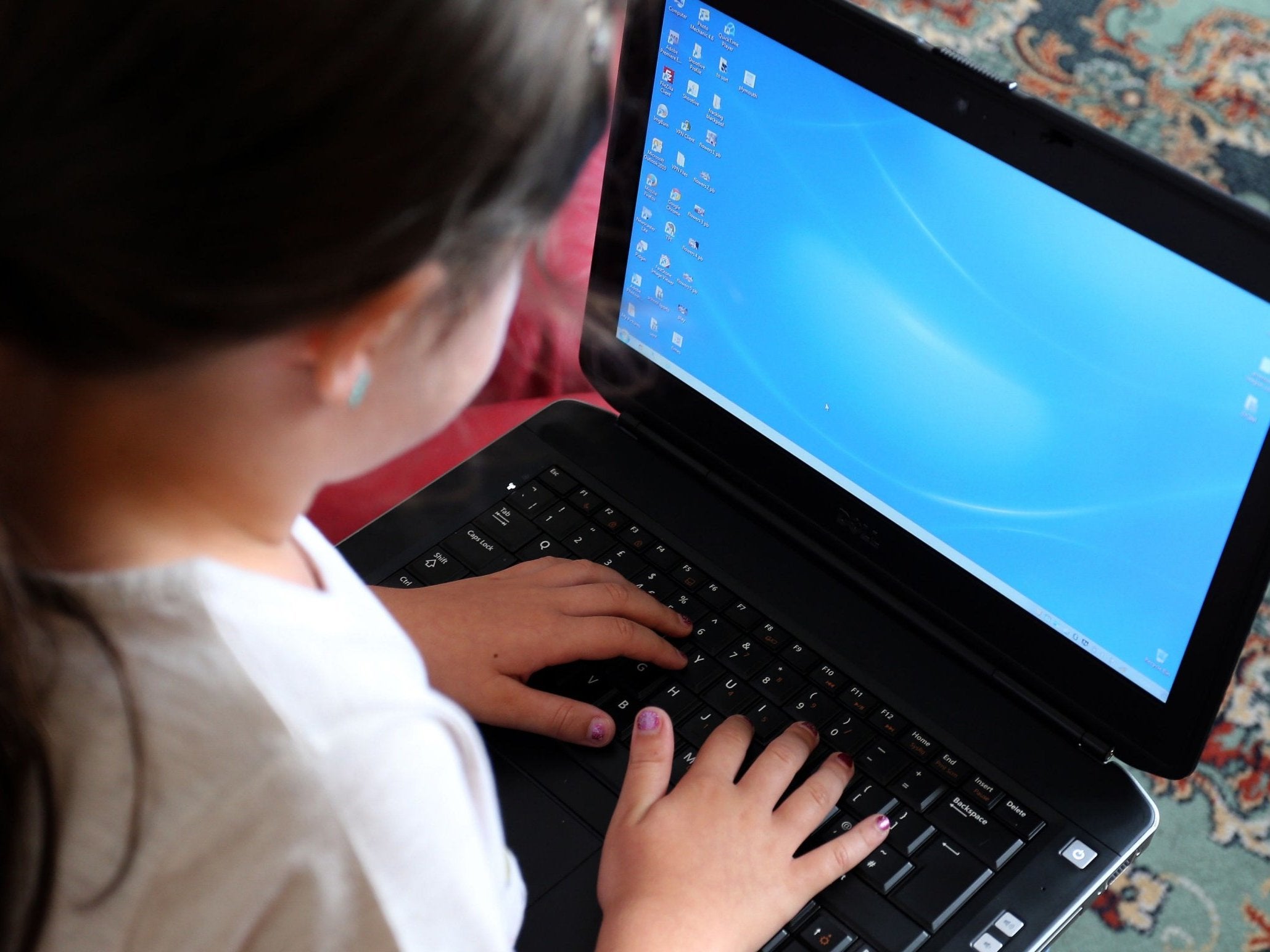Children spend twice as long looking at screens than playing outside, study finds
Parents admit too much screen time could affect the ability of their children to think creatively

Your support helps us to tell the story
From reproductive rights to climate change to Big Tech, The Independent is on the ground when the story is developing. Whether it's investigating the financials of Elon Musk's pro-Trump PAC or producing our latest documentary, 'The A Word', which shines a light on the American women fighting for reproductive rights, we know how important it is to parse out the facts from the messaging.
At such a critical moment in US history, we need reporters on the ground. Your donation allows us to keep sending journalists to speak to both sides of the story.
The Independent is trusted by Americans across the entire political spectrum. And unlike many other quality news outlets, we choose not to lock Americans out of our reporting and analysis with paywalls. We believe quality journalism should be available to everyone, paid for by those who can afford it.
Your support makes all the difference.Young children spend twice as long looking at screens as they do playing outside, a study has found.
By the time they reach the age of seven, children will have been looking at screens for the equivalent of 456 days – an average of four hours every day.
But just 182 days, or an average of just over an hour and a half a day, will have been spent playing outdoors.
It also emerged more than half of a child’s screen time is described as “mindless” - spent without family or friends, in solitary, screen-based activities.
The research, of 1,000 British and Irish parents of children aged up to seven, was conducted by Persil, and found three quarters have used a screen to entertain their youngsters so they can get on with other tasks.
But six in 10 admit this behaviour, while convenient, could negatively affect their child’s creative thinking and ability to problem solve.
Sir Ken Robinson, a leading expert in education, creativity and human development and chair of the Good Child Development Advisory Board, said: “If you’re an adult now, how much time did you spend as a child playing outdoors, making up games on your own or with friends, dashing around, taking tumbles, all for the sheer fun of it?
“Until recently, children spent many hours every week on this sort of physical, imaginative, social play.
“'Real play' like this is not only enjoyable: it is vitally important in young lives.
“Research has long shown that it has essential roles in the balanced development of all children and young people.”
The study also found 62 per cent of parents wish their children would spend more time playing outside as opposed to in front of a screen.
More than four in 10 parents have even discovered their children using two screens at once.
Persil is collaborating with the Outdoor Classroom Day initiative on 1 November that challenges schools to give at least one lesson outdoors, and celebrate the important of playtime.
Sir Robinson added: “This latest research also shows that children now spend much less time on ‘real play’ than ever before.
“One reason is the unprecedented amount of time they spend indoors looking at screens.
“There are all kinds of attractions in using digital technologies, for pleasure, leisure work and education.
“But there’s a downside and the catastrophic erosion of ‘real play’ is a major part of it.
“This startling study is a call to action for parents; educators and policy makers to create real time and space for real play in the lives of all children.“
SWNS
Join our commenting forum
Join thought-provoking conversations, follow other Independent readers and see their replies
Comments